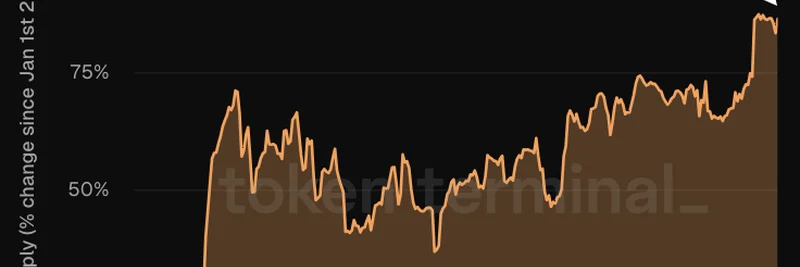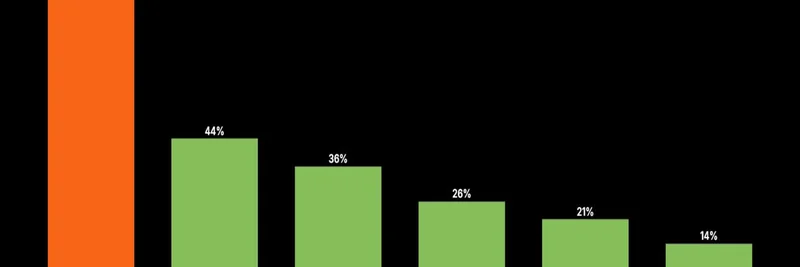Hey there, crypto enthusiasts! If you’ve been keeping an eye on the latest buzz on X, you might have stumbled across a thought-provoking post by Kyle (@0xkyle__) that’s got the community talking. Posted on July 2, 2025, at 05:02 UTC, Kyle dives into a bold claim: decentralization, DAOs (Decentralized Autonomous Organizations), and open-source projects in crypto are the closest we’ve come to “internet socialism”—but they’ve ultimately failed because no one has the incentive to keep the wheels turning. Let’s break this down and see what’s really going on!
What Did Kyle Mean by "Internet Socialism"?
Kyle’s post suggests that decentralization, DAOs, and open-source efforts mirror the ideals of socialism online—no hierarchies, communal work, and decisions shaped by the community. Imagine a world where everyone pitches in to build something amazing, like a blockchain protocol, without a boss calling the shots. DAOs, for instance, are organizations run by code and governed by token holders who vote on decisions (more on DAOs here). Open-source projects let anyone contribute to the code, making it a collective effort. Sounds utopian, right?
But here’s the catch: Kyle argues this system flops because there’s no real motivation for people to put in the work. Without a paycheck or clear rewards, why would someone spend hours coding or managing a project? This lack of incentive is the crux of his argument, and it’s tied to a bigger conversation happening across the crypto space.
The Context: A Shift in Crypto Thinking
Kyle’s post builds on a thread by Gwart (@GwartyGwart), who reflects on how the early days of crypto (roughly 2016-2023) were fueled by the belief that building open-source infrastructure—like blockchain layers (L1s)—would naturally lead to value. The “fat protocol thesis” suggested that the base layers of blockchain would capture the most value, not the apps built on top. But as Udi Wizardheimer and others have pointed out, the biggest crypto success stories lately aren’t open-source. Projects are moving toward centralized models with clear monetization, leaving the “public goods” approach in the dust.
This shift makes sense when you think about it. Public goods—like open roads or libraries—benefit everyone but don’t generate profit for those who build them. In crypto, attaching tokens to these projects was supposed to incentivize work, but as Kyle notes, it hasn’t panned out. People are realizing that without a sustainable business model, these efforts stall.
Why the Failure?
So, why has this “internet socialism” experiment failed? Let’s dig into a few key reasons:
- No Incentive Structure: In traditional companies, employees get salaries, and executives get bonuses. In DAOs, token rewards can be volatile or diluted, making it hard to rely on them. If you’re not seeing a steady return, why bother?
- Coordination Challenges: Without a leader, decision-making can grind to a halt. Imagine a group chat where everyone votes on dinner—deciding gets messy fast!
- Real-World Precedents: Outside crypto, open-source successes like Red Hat or GitHub turned code into profitable services. Crypto tried to skip that step, banking on tokens alone, and it didn’t work.
Kyle’s link to a YouTube video (unfortunately not accessible here) likely dives deeper into this, but the message is clear: the dream of a self-sustaining, community-driven crypto ecosystem is fading.
What’s Next for Crypto?
This doesn’t mean decentralization is dead—it’s just evolving. Some, like Lauris (@lzminsky), suggest “enlightened absolutism” (a single strong leader) might work better for organizations. Others, like Xav (@XavLiew), agree with Kyle’s take, hinting that the industry might lean toward centralized models with better incentives.
At Meme Insider, we’re watching how this plays out, especially with meme tokens, which often rely on community hype rather than solid fundamentals. Could this shift toward centralized success stories influence the meme token space? It’s a question worth pondering as we head into 2025.
Final Thoughts
Kyle’s post is a wake-up call for the crypto community. The idealism of decentralization and DAOs was a noble experiment, but without incentives, it’s hard to sustain. As the industry matures, we might see a hybrid approach—blending community spirit with profit-driven models. What do you think? Drop your thoughts in the comments, and let’s keep the conversation going!
For more insights into blockchain trends and meme tokens, check out our knowledge base or explore the latest crypto news. Stay curious, and happy investing!



